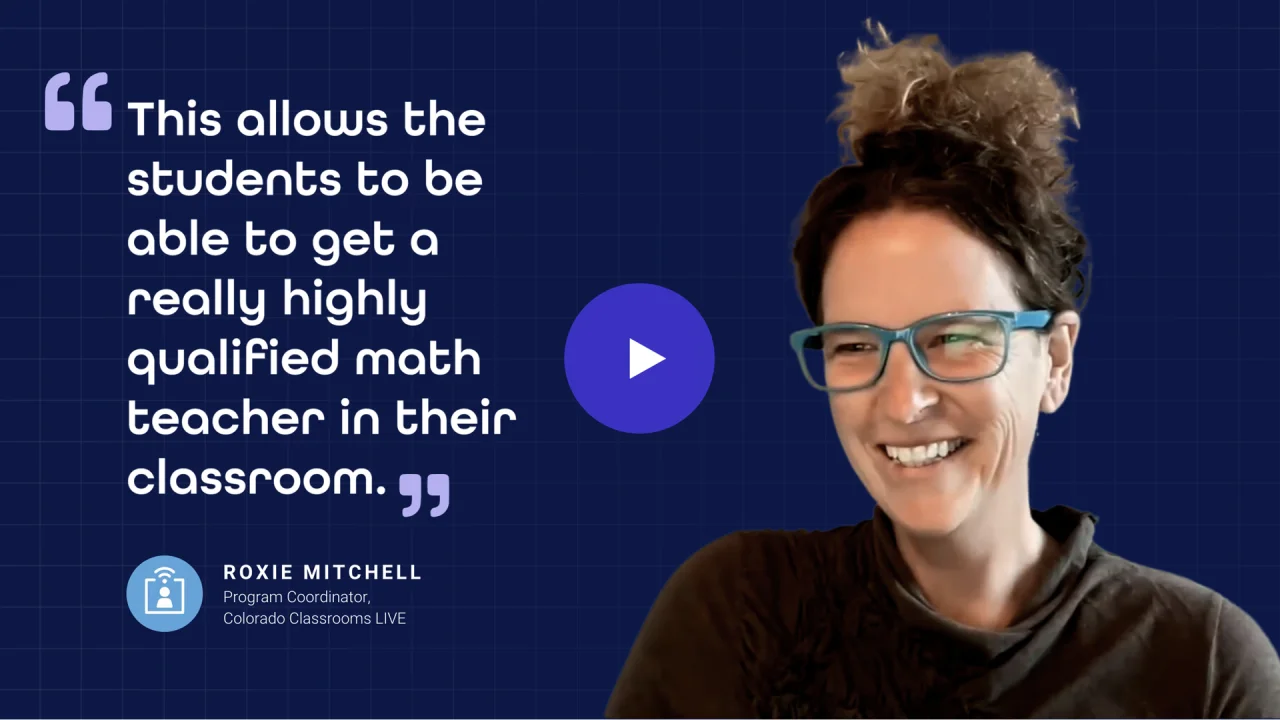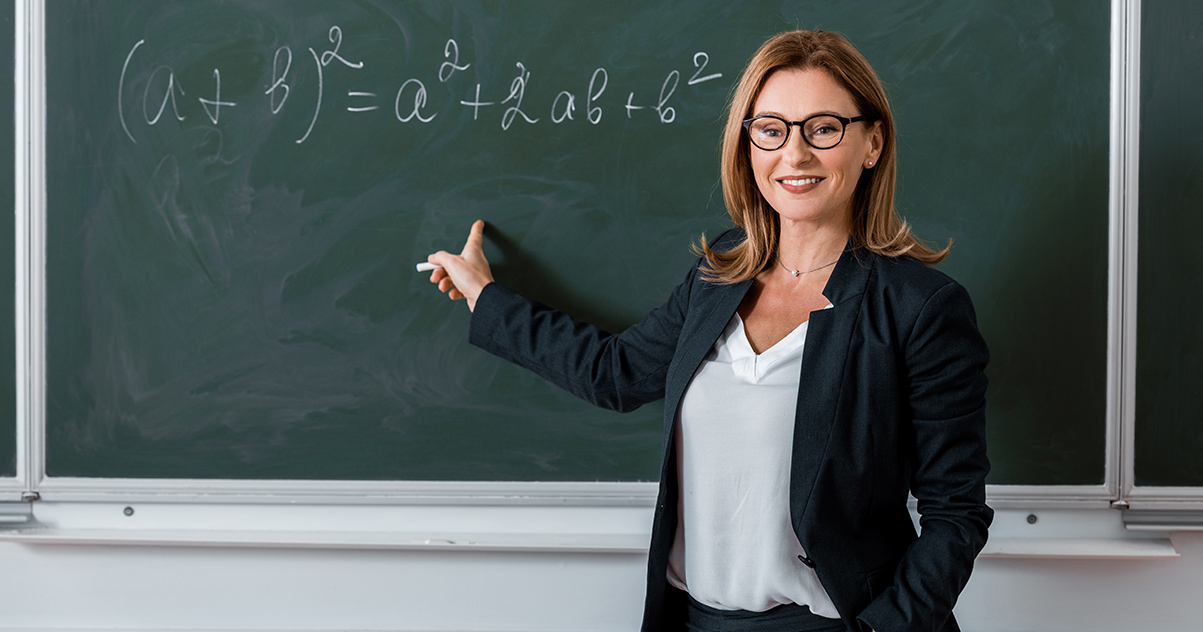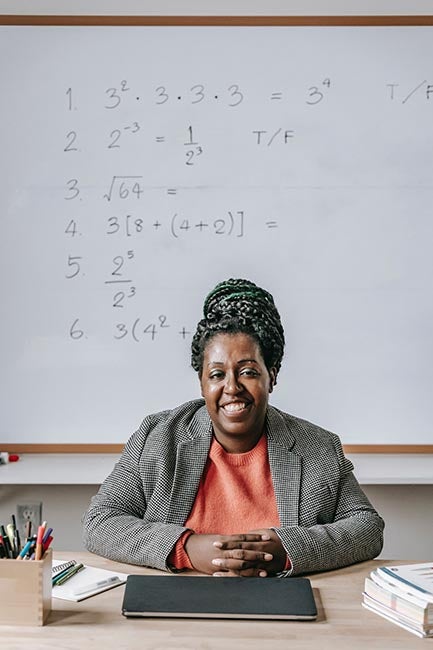Everything About Professional Math Educators: Their Role in Fostering Trainee Growth and Achievement in Mathematics Education And Learning
Qualified math teachers are important fit trainees' understanding and appreciation of maths. Their deep expertise and efficient mentor methods can significantly affect pupil outcomes. These educators not only present mathematical skills however additionally promote a comprehensive atmosphere that fulfills diverse learning needs. As they take on innovative methods, the question arises: how do these methods specifically enhance pupil interaction and success in mathematics?
The Importance of Certified Mathematics Teachers in Education
Although numerous aspects add to student success in mathematics, the presence of certified mathematics instructors stands out as a vital component in cultivating effective understanding atmospheres. Study regularly indicates that pupils educated by instructors with strong mathematical backgrounds tend to demonstrate greater levels of understanding and accomplishment. Certified mathematics teachers not only have a deep understanding of mathematical ideas however likewise the pedagogical skills required to communicate complicated concepts in easily accessible means. They can recognize trainees' individual requirements and adapt their training techniques accordingly, advertising inclusivity and engagement. In enhancement, their competence allows them to create a positive class ambience that encourages risk-taking and strength in analytic. This helpful atmosphere promotes a growth attitude amongst pupils, boosting their confidence and inspiration in maths. On the whole, certified math educators play a vital role fit pupils' attitudes toward math, eventually influencing their future opportunities and scholastic trajectories.
Secret Qualities of Reliable Math Educators
Reliable math instructors possess a number of key top qualities that enhance their teaching efficiency. These include deep subject understanding, strong interaction abilities, and adaptive training methods that cater to varied understanding requirements. Acknowledging and growing these characteristics can greatly impact trainee understanding and interaction in mathematics.
Deep Topic Knowledge
While a strong instructional strategy is essential, deep subject understanding stays a keystone of effective mathematics teachers. Such expertise allows teachers to comprehend mathematical ideas completely and to anticipate trainee false impressions. Educators with a strong grasp of math not just provide material with confidence but also link different subjects, promoting a richer understanding setting. They are furnished to apply diverse training strategies that provide to different knowing styles, making complicated concepts much more easily accessible. Deep subject knowledge equips instructors to involve in significant conversations with students, encouraging critical reasoning and analytic skills. Ultimately, the depth of understanding that math instructors have considerably affects pupils' scholastic development and success in mathematics, laying a solid foundation for future learning.

Strong Interaction Skills
Deep subject understanding alone is insufficient for promoting a productive discovering atmosphere in maths; strong interaction abilities are equally vital for effective mathematics educators. These abilities make it possible for instructors to convey intricate principles in obtainable methods, making certain that trainees grasp fundamental ideas. Efficient interaction involves not only clearness however additionally the capacity to proactively pay attention, motivating pupil involvement and attending to misconceptions. By fostering an open dialogue, instructors produce a supportive class ambience where students feel comfy asking inquiries and expressing their thoughts. In addition, solid communicators can adapt their language and descriptions to fit varied knowing styles, improving student engagement and comprehension. Ultimately, effective communication bridges the gap in between an instructor's knowledge and a pupil's understanding, substantially impacting academic accomplishment in mathematics.
Flexible Teaching Approaches
A selection of adaptive teaching strategies are important for effective math teachers intending to satisfy the varied needs of their students. These approaches allow educators to tailor their instruction based upon private knowing rate of interests, capacities, and designs. qualified math teachers. Strategies such as differentiated direction, where teachers change material, procedure, or item, help address varying efficiency levels. Additionally, including modern technology and interactive devices can boost involvement and facilitate customized discovering experiences. Formative evaluations enable teachers to keep an eye on progress and readjust teaching methods appropriately. Collaborative team job promotes peer learning, cultivating an encouraging environment. By employing these flexible methods, math instructors can develop comprehensive class that urge all trainees to thrive and achieve their academic objectives, eventually cultivating a love for maths
Cutting-edge Training Techniques Utilized by Mathematics Teachers
As teachers look for to involve pupils much more efficiently, cutting-edge mentor methods have actually become a prime focus in mathematics classrooms. These approaches intend to improve understanding and retention of mathematical principles. One noticeable technique is the use of innovation, such as interactive software and online simulations, which permits trainees to envision complex issues and receive prompt feedback.Additionally, project-based understanding encourages cooperation and real-world application of mathematics principles, promoting vital thinking skills. Gamification, where math concepts are incorporated into game-like environments, has additionally gained popularity, making finding out a lot more satisfying and inspiring for students.Moreover, separated direction dressmakers lessons to fit differing ability degrees, making sure that all trainees can advance at their very own pace. By employing these ingenious methods, math instructors produce vibrant learning experiences, ultimately promoting greater trainee development and success in maths.
Producing Inclusive Knowing Atmospheres
Creating comprehensive learning environments in maths education and learning involves executing diverse learning techniques and promoting joint team activities. These techniques deal with the different requirements of trainees, making certain that everyone has the opportunity to be successful and involve. By prioritizing inclusivity, math teachers can grow a class atmosphere that supports all students.
Diverse Discovering Strategies
While numerous teachers undertaking to foster comprehensive learning settings, carrying out varied knowing techniques is important for effectively reaching all students. These approaches include a variety of teaching approaches tailored to suit differing learning designs, histories, and abilities. Incorporating aesthetic help, manipulatives, and technology can engage students who may struggle with conventional direction. Furthermore, set apart instruction allows teachers to change evaluations and jobs, making certain that every trainee can access the educational program at their own degree. Culturally receptive rearing additionally plays a significant duty in identifying and valuing the varied experiences of trainees, thus improving their link to the product. By making use of these varied discovering approaches, qualified math teachers can produce an encouraging ambience where all pupils are encouraged to succeed in mathematics.
Collaborative Group Activities

The Effect of Competent Mathematics Teachers on Trainee Achievement
The existence of certified math teachers substantially affects trainee success, as efficient direction can link spaces in understanding and foster a positive discovering setting. Research study shows that trainees taught by experienced teachers demonstrate greater levels of efficiency in mathematical ideas compared to their peers. Qualified math instructors possess a deep understanding of mathematical material, enabling them to existing material in diverse ways that satisfy different learning designs. This versatility not just boosts understanding however also increases trainee self-confidence in their abilities.Moreover, qualified instructors commonly utilize developmental evaluations to monitor student progression, enabling for prompt interventions when required. Their ability to produce engaging lessons motivates student participation and advertises a growth attitude. Because of this, the influence of qualified math educators extends beyond simple academic performance; it grows a feeling of curiosity and resilience in students, inevitably bring about enhanced outcomes in mathematics and a more powerful structure for future learning.
Approaches for Involving Trainees in Mathematics
Engaging students in math needs a multifaceted approach that includes varied methods to capture their interest and improve understanding. One reliable approach is using real-world applications, allowing students to see the relevance of mathematical principles in everyday life. Integrating modern technology, such as interactive software application and on the internet sources, can also foster interaction by giving vibrant knowing experiences.Group job encourages cooperation, making it possible for trainees to pick up from each other and create problem-solving skills in a helpful setting. Furthermore, Source incorporating games and hands-on tasks can make finding out visit this website more accessible.differentiated and pleasurable direction provides to numerous learning styles, making sure that all pupils can link with the product. Supplying timely comments assists pupils recognize their progress and locations for improvement, promoting a development mindset. By using these methods, instructors can create an interesting math classroom that advertises trainee growth and achievement.
The Function of Specialist Advancement in Enhancing Math Mentor Skills
While lots of educators identify the importance of effective training approaches, professional growth plays a vital function in improving mathematics training skills (qualified math teachers). Constant training chances enable educators to remain present with instructional developments, mathematical content, and technological tools. Seminars and workshops supply forums for instructors to work together, share best practices, and review difficulties they run into in the classroom.Furthermore, professional growth promotes a growth way of thinking among instructors, motivating them to assess their methods and adapt their methods based on trainee requirements. This recurring knowing process not only enhances instructors' mathematical understanding yet also outfits them with ingenious educational strategies that can cause improved trainee interaction and achievement.Ultimately, an organized specialist advancement program can significantly impact the quality of math education, making sure that educators are well-prepared to motivate and direct their students toward success in mathematics
Regularly Asked Inquiries
What Certifications Are Needed to Come To Be a Mathematics Educator?
To end up being a mathematics instructor, individuals usually need a bachelor's level in mathematics or education, teaching certification, and a strong understanding of mathematical ideas. Added credentials may include specialized training in rearing and class management skills.

Just How Do Mathematics Educators Assess Student Progression in the Class?
Math teachers evaluate trainee progress through numerous approaches, consisting of tasks, tests, and tests (qualified math teachers). They likewise make use of empirical assessments and pupil engagement to determine understanding, changing guideline based on specific and team efficiency to boost finding out outcomes
What Obstacles Do Mathematics Educators Typically Face?
Math educators frequently face challenges such as differing student skill levels, restricted resources, educational program restraints, and the requirement to involve students efficiently. Additionally, they typically experience pressure to improve standard test scores and manage classroom actions.
Exactly How Can Parents Support Their Youngster's Math Education?
Parents can sustain their kid's mathematics education by supplying a helpful understanding environment, engaging in math-related tasks, encouraging a positive attitude towards obstacles, and maintaining open communication with teachers to check development and address problems.
What Resources Are Offered for Math Educators to Improve Their Abilities?
Different resources are offered for math educators, including on-line training courses, specialist growth workshops, peer partnership teams, academic internet sites, and training journals. These tools enhance educational approaches, grow subject knowledge, and inevitably enhance trainee learning outcomes in maths. Certified math educators are vital in shaping trainees' understanding and recognition of mathematics. Lots of elements add to pupil this page success in maths, the presence of certified mathematics teachers stands out as a vital element in fostering efficient discovering atmospheres. Furthermore, qualified math educators promote these communications by purposefully grouping trainees, making sure that each group contains a mix of skill levels and backgrounds. The existence of certified math teachers considerably influences student success, as effective instruction can bridge spaces in understanding and cultivate a positive knowing environment. Math educators typically encounter difficulties such as varying pupil skill levels, minimal sources, curriculum restrictions, and the need to engage students successfully.